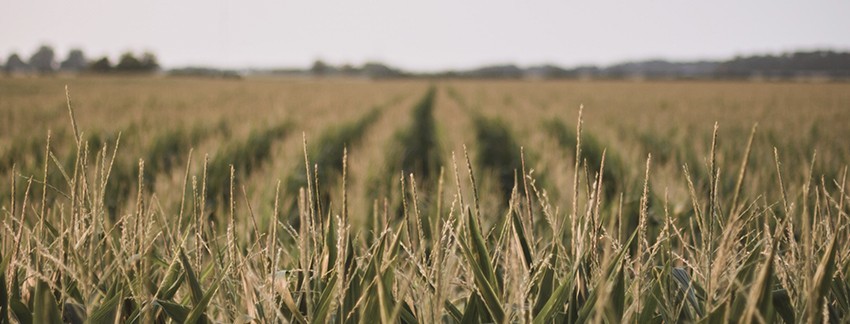
Successful completion of one of our projects in Guatemala
Successful completion of one of our projects in Guatemala Laura Núñez Muñoz More than 20 years of general experience and, for the last 15 years,

Leonor de la Cueva Castillo has a PhD in Chemistry, with more than 8 years of experience in fundamental research in the areas of electrochemistry, materials science, nanotechnology and photovoltaics. She is currently Project Manager in the European Funds unit of Euro-Funding.
The European Green Deal Action Plan has as one of its fundamental pillars the “Farm to Fork” strategy. This initiative is directed towards the transition to a sustainable food system in order to guarantee access to healthy diets and the protection of our ecosystems. A sustainable food system will be essential to achieve the climate and environmental objectives of the Green Pact, while improving the income of primary producers and strengthening the EU’s competitiveness.
Today, agriculture is responsible for 10.3% of the EU’s greenhouse gas (GHG) emissions and almost 70% of these come from the animal sector (mostly methane and nitrous oxide). In addition, 68% of total agricultural land is used for animal production. This sets out the EU’s objectives for reducing the environmental and climate footprint of the food system, strengthening its resilience and leading a global transition towards competitive sustainability from “farm to table” and exploiting new opportunities based on the bio-economy of the rural sector.
This initiative aims to ensure that the food chain, which covers the production, transport, distribution, marketing and consumption of food, has a neutral or positive environmental impact. To this end, all actors in the value chain must shift towards greener business models and promote a bio-based circular economy whose great potential has yet to be developed. As an example, the “Farm to Fork” strategy will enable farmers to reduce methane emissions from livestock by producing renewable energy, and by investing in anaerobic digesters (from agricultural waste such as manure), for biogas production. Farms also have the potential to produce biogas from other sources of residues and waste, such as those from the food and beverage industry, wastewater and municipal waste.
A clear example of the implementation of this type of bioeconomy is in advanced biorefineries. These biorefineries produce biofertilizers, protein feeds, bioenergy carriers and high value-added biochemicals, offering opportunities for the transition to a climate-neutral European economy and the creation of new jobs in primary production.
One of the most important aspects that have been taken into account in the “From Farm to Fork” strategy is food security, nutrition and public health. In 2017, there were more than 950,000 deaths (one in five) and more than 16 million years of healthy life lost attributable to unhealthy diets, mainly cardiovascular diseases and cancers. In order to stop this negative trend, the Farm to Table strategy aims to ensure a sufficient and varied supply of safe, nutritious, affordable and healthy food for people.
These foods must at all times meet high standards of safety and quality, plant and human health and animal welfare, while at the same time satisfying dietary needs and food preferences. To ensure the production of healthy and safe food for citizens, the European Commission has set the following objectives:
Reducing the use of chemical pesticides in agriculture as they contribute to soil, water and air pollution and to the loss of biodiversity and can harm plants, insects, birds, mammals and amphibians. The Commission will take different measures to:
Reducing excess nutrients (especially nitrogen and phosphorus) in the environment, resulting from overuse and the fact that not all nutrients used in agriculture are effectively absorbed by plants. Excess nutrients are another major source of air, soil and water pollution and are the cause of reduced biodiversity in rivers, lakes, wetlands and seas. The Commission will take different measures to:
Reducing antimicrobial resistance (AMR) linked to the excessive and inappropriate use of antimicrobials in animal and human health care that causes some 33,000 human deaths in the EU each year and generates considerable health costs. The Commission will take action to:
Protecting plant health from new pests and diseases through the use of new innovative techniques such as biotechnology and the use of bio-based products. The Commission will take action to:
It also aims to preserve access to food, while generating fairer economic benefits in the supply chain, so that ultimately the most sustainable food also becomes the most affordable, fostering the competitiveness of the EU supply sector, promoting fair trade, creating new business opportunities while ensuring the integrity of the single market and health and safety at work.
The Commission will take action to accelerate the market entry of new solutions that contribute to improving the sustainability of the food value chain, provided that these investments are made in a sustainable manner and without compromising food security or biodiversity, in the framework of clean energy initiatives and programmes.
The European Commission relies on research and innovation as key drivers to accelerate the transition to sustainable, healthy and inclusive food systems from primary production to consumption. R&D should help develop and test solutions, overcome barriers and discover new market opportunities. 10 billion in research and development in the fields of food, bio-economy, natural resources, agriculture, fisheries, aquaculture and environment, as well as in the use of digital technologies and nature-based solutions for the agri-food sector.
In Euro-Funding we have dozens of professional experts in the identification of calls (dynamization) and elaboration of European proposals, to guide public and private entities in the application process, achieve the required funding and make these solutions with great innovation potential a reality.

Successful completion of one of our projects in Guatemala Laura Núñez Muñoz More than 20 years of general experience and, for the last 15 years,

PERTE for industrial decarbonisation approved PERTE for industrial decarbonisation approved The PERTE is approved with the aim of accompanying industry in its decarbonisation process to

Keys to efficient driving Enrique Roca Industrial Technical Engineer with specialization in Mechanics. He is currently Technical Manager in the Energy Efficiency and Sustainability unit
